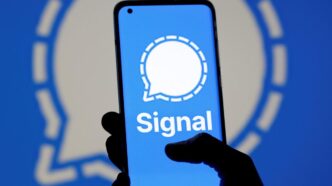In a stunning breach of national security, the Trump administration’s top officials accidentally leaked confidential war plans against Yemen’s Houthis . By including a journalist in a private Signal chat meant for senior leaders.
The editor-in-chief of The Atlantic, Jeffrey Goldberg, revealed that he was mistakenly added to a Signal group chat on March 15. Where U.S. national security officials were discussing imminent military strikes. Shockingly, the messages detailed the U.S. plan to bomb Houthi targets. Information Goldberg received just two hours before the attack began.
“I could not believe that the national-security leadership of the United States would communicate on Signal about imminent war plans,” Goldberg wrote, describing the moment he realized he was reading highly classified discussions intended for the country’s top security leaders.
While Signal is known for its end-to-end encryption and privacy features. Platforms like it — including WhatsApp or iMessage — are not authorized for sharing sensitive government communications. Especially those involving active military operations.
Initially, Goldberg suspected a sophisticated hoax or a disinformation campaign designed to manipulate the press. “I thought this could be bad actors planting a false story,” he admitted. However, a spokesperson from the National Security Council (NSC) later confirmed the messages were real. And the accidental inclusion of Goldberg was genuine — not a cyberattack or misinformation effort.
“I have never seen a breach quite like this,” Goldberg wrote, underscoring the serious implications of such a slip-up.
This Signal security breach raises critical concerns about how national security communications are handled and the risks of using commercial platforms for classified discussions. It also exposes the growing tension between modern tech tools and traditional government protocols designed to protect sensitive information.
With geopolitical tensions running high and military operations unfolding, the incident serves as a stark reminder: even encrypted apps cannot replace secure government channels when it comes to protecting national security secrets.













